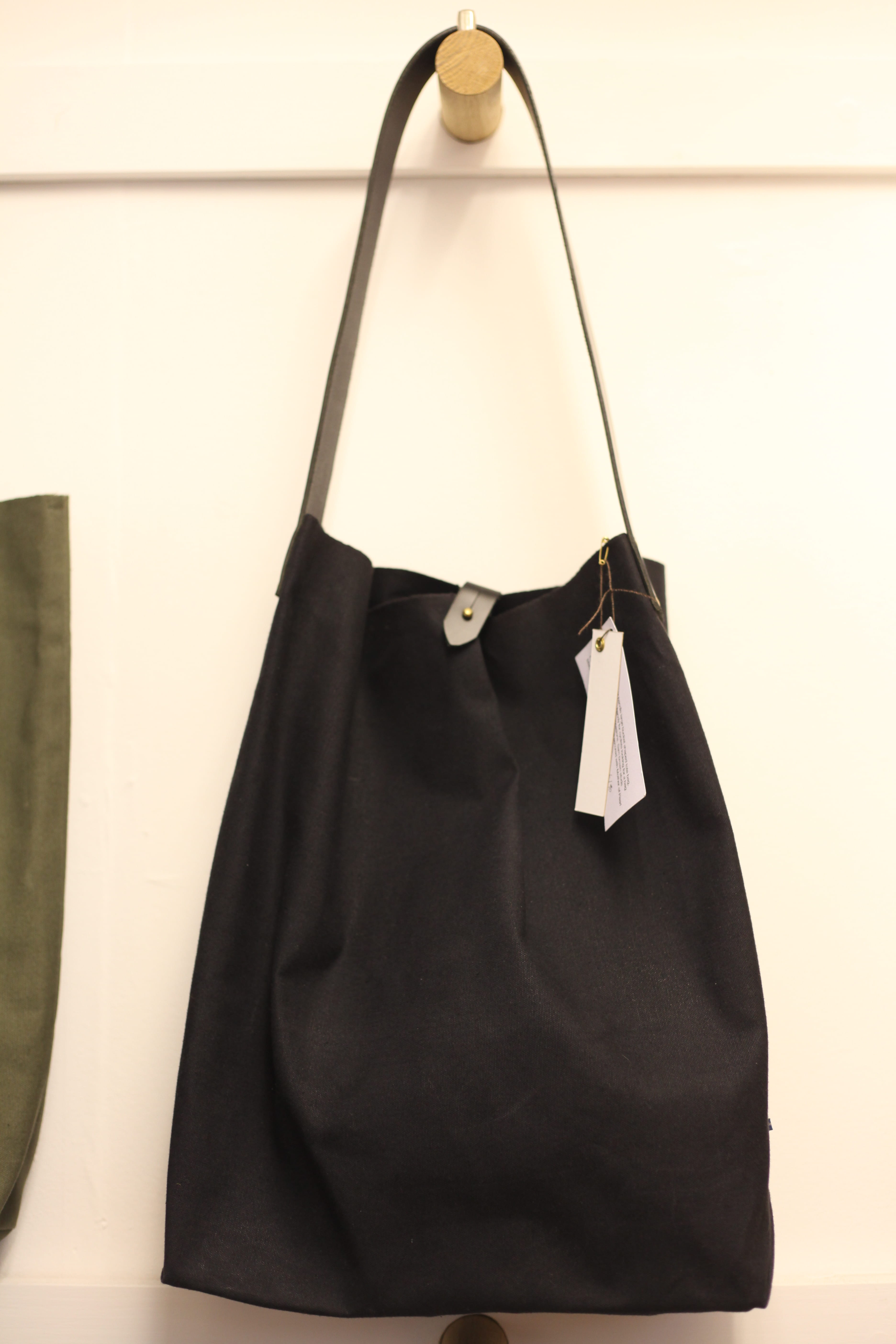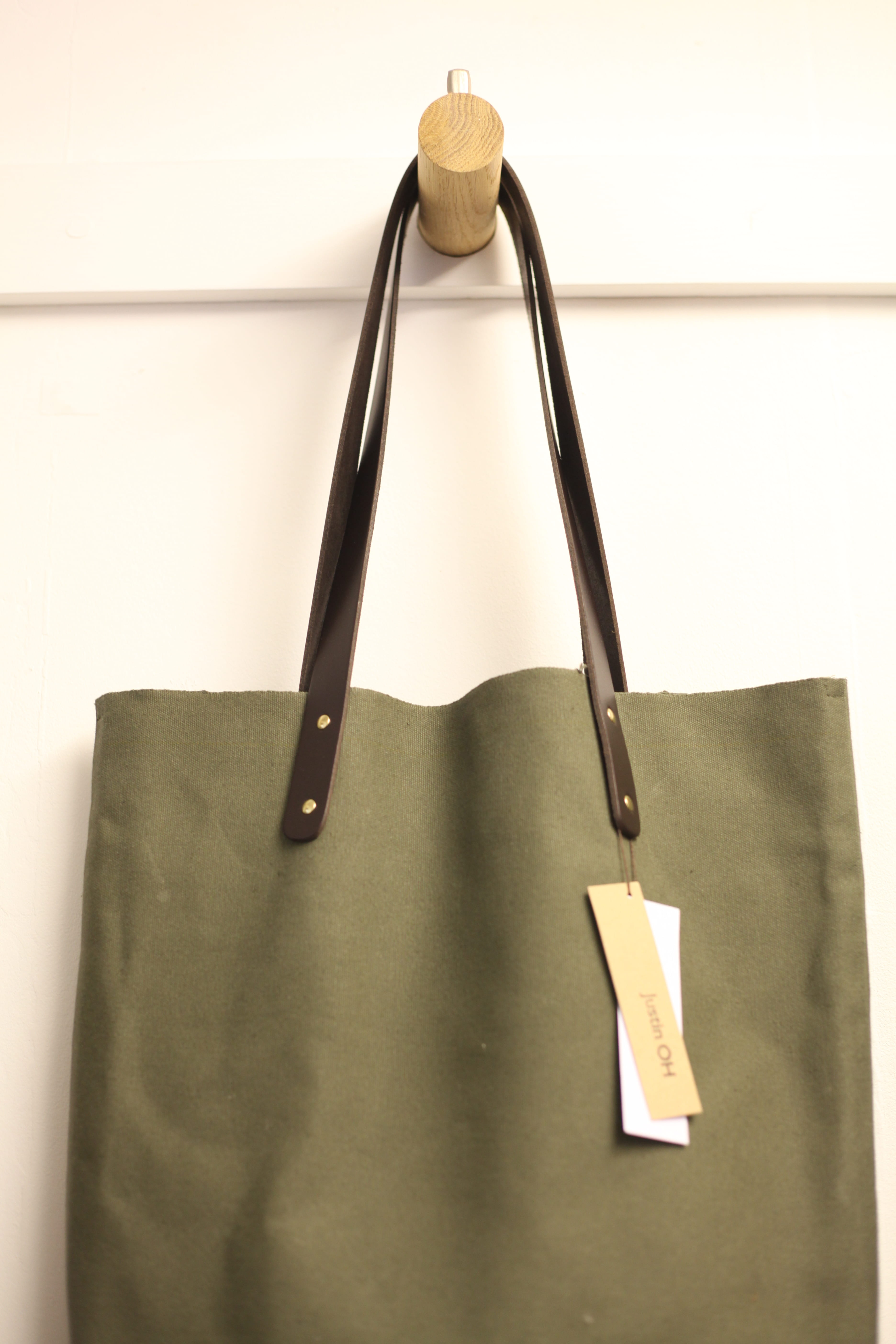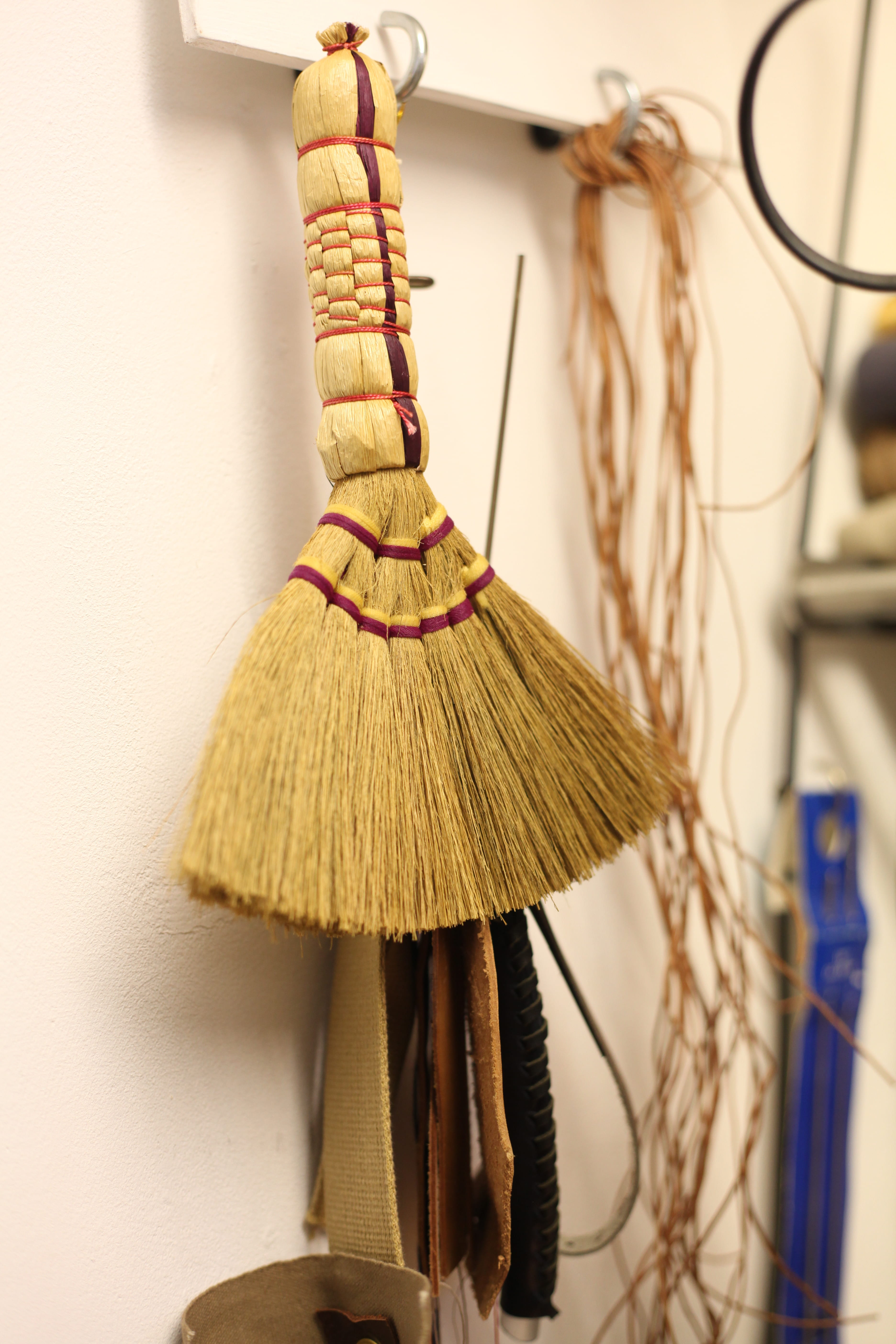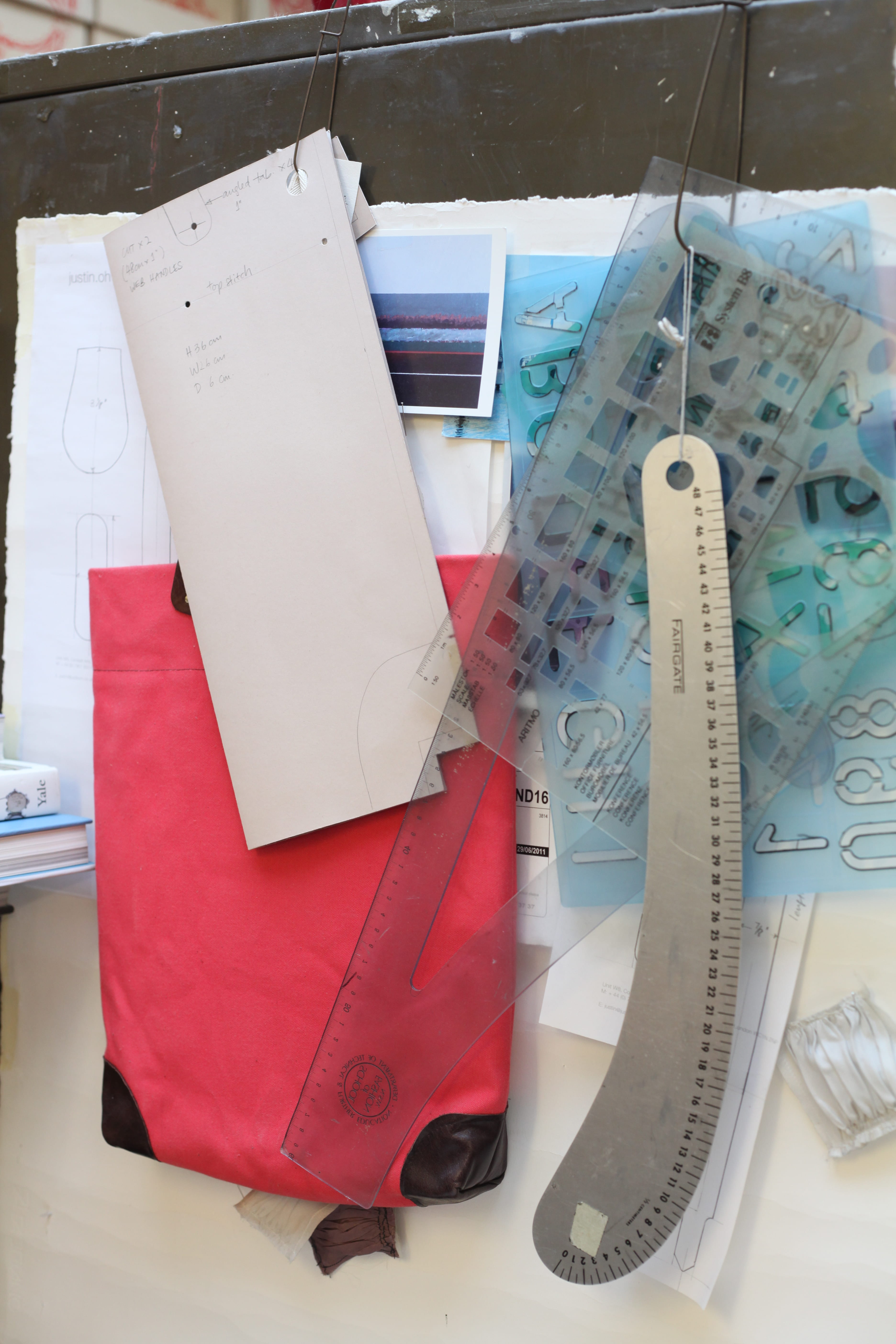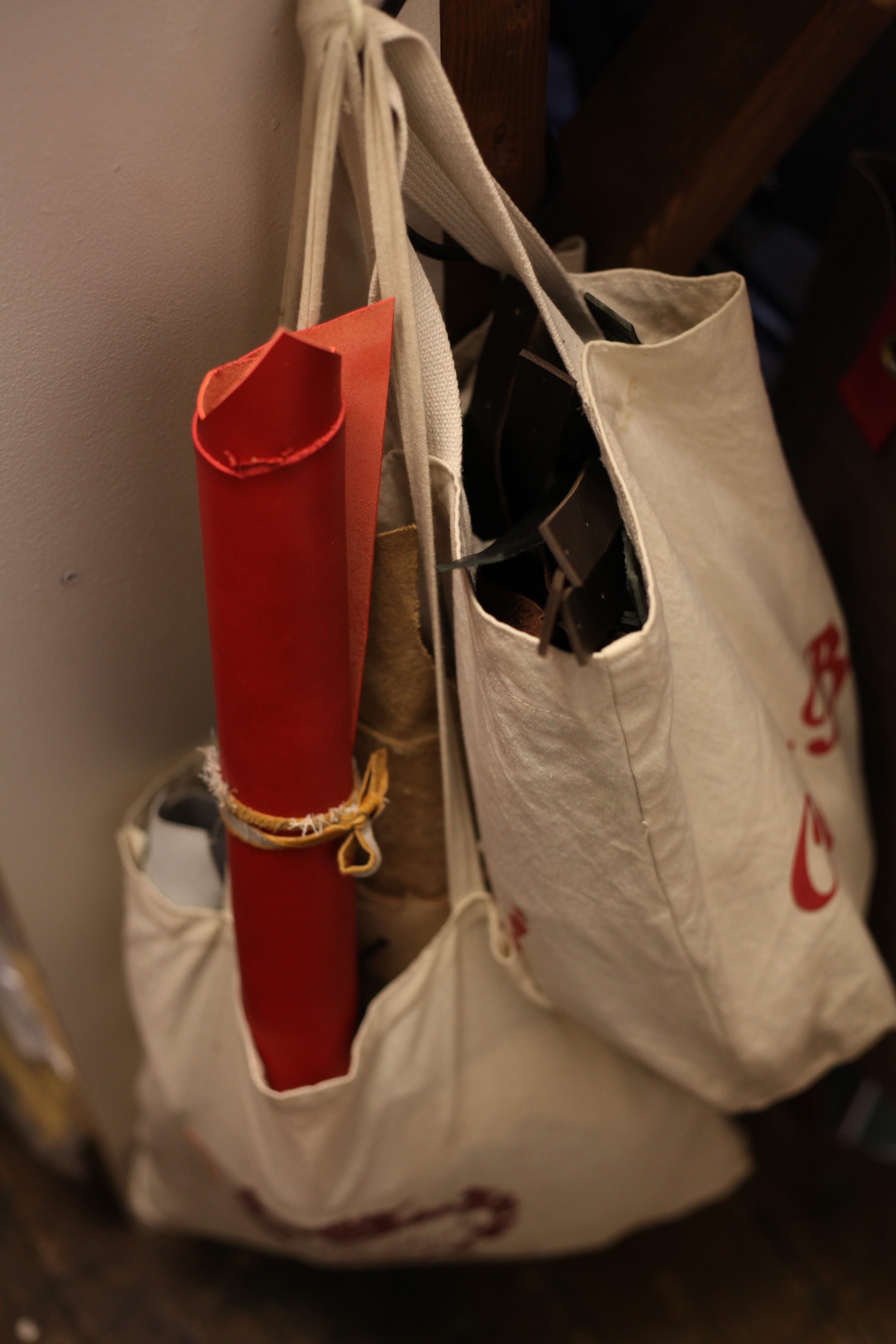“At the beginning it was a struggle, but one day I had a ring at the door, with no appointment. Normally we don’t allow that, but I answered it and there was this tall guy there who said ‘I bought this bag from you, it’s fallen to bits, but I love it so much. Can you fix it for me?’ Of course I said yes. But at this point I had stopped making the bags, as I wasn’t really selling many and nobody really knew about them. As it turns out, the man happened to be a creative director at Phillips! I was really encouraged by this and he was so passionate about his bag that it gave me the confidence to make the bags again.”
The irony that an independent designer-maker was encouraged to persist with his brand by an employee of a global electronics company isn’t lost on Justin Oh, owner of his eponymous line of bags and accessories. But at the same time, it’s a heartening story of how smaller and larger businesses can exist in harmony with one another, rather than in conflict.
Justin continues to have customers who return for repairs, and he enjoys seeing how his bags age and hold up. “My bags are humble things, they’re not flashy, but it’s really nice that people care so much about them and want them to live on”.

Justin’s bags are designed carefully, with long life in mind. Having wanted to be an architect – until he discovered the training was too long and expensive – shape maintains a very important consideration in his design process. He spends hours prototyping various designs and sampling different measurements, until he gets the proportions he desires.
It was this architectural shape that first drew my eye to a Justin Oh bag in a Folk store on Lamb’s Conduit Street. A simple black tote with stunning brass details. I read the label attached to the bag and was struck by his focus on using British hardware and natural fibres.
Most of Justin’s items are made from cotton, a fibre which Justin says “was always my first love. Even from a very young age with things like school uniforms. Sometimes they sneak in polyester shirts and you can feel the difference (from cotton). I really didn’t like it. I hate to use a cliché but cotton is honest and humble.”
Justin laments the rise of plastic being used in accessories, particularly in things like travel wallets.
“A while ago, IKEA were producing so many of these plastic wallets, I just thought it was terrible. I decided I had to do something about it, so I came up with my own travel wallet in cotton cloth. It might not be organic but it is biodegradable, so it’s not going to end up in this plastic island in the middle of the pacific. It really made me happy because it was one of the first things I did which had a very strong purpose.”
Justin believes in encouraging people to be environmentally aware and takes an “go easy with Mother Nature for there’s only one” approach, believing that “it’s up to all of us to do our bit.”

Although Justin firmly stands by the use of natural materials, it’s not without its difficulties:
“I’m almost shooting myself in the foot with the canvas, as a lot of people ask ‘how do I clean it?’ They like it to be laminated, which although makes it easier to wash, it kills the natural fibre and takes away the eco friendliness of it. I think lamination is very destructive personally. It’s similar to superwash wool where the natural lanolin is removed to make wool suitable for the washing machine, it may be practical but it isn’t environmentally friendly.”
Justin’s environmental ethos is paired with a passion for meticulous hand finishing. People are drawn to the workwear aesthetic of cotton canvas, complimented by beautiful brass D-rings, thick cotton webbing, and leather strapping.
“If you study the bags you’ll start to notice this webbing – it’s very important to me. You see a lot of plastic, man-made fibers used for handles and it’s slick, buts it’s not very nice.
Justin gets his webbing from horse harnesses. In fact, most of his hardware is sourced from British suppliers to the equestrian trade.
“The hardware is all equestrian quality. I love the outdoor pursuits, like sailing, riding and hunting. I just love all the bits. It’s proper isn’t it?”

You can tell Justin is very passionate about the quality of his bags. He makes pretty much everything in his studio at Cockpit Arts, piece by piece.
“It is quite demanding. Making prototypes takes a very long time – and calico! And then each item has to be made individually.
And Justin admits himself, he is “very fussy with finish.” To achieve such high standards of detailing, Justin has to work at his studio more than 5 days a week. It’s certainly not easy and dispels some of the romanticism about running your own business, but Justin feels a lot happier working for himself than he did working in the fashion industry.
Justin had previously worked for Joseph and Yohji Yamamoto as a designer and cutter, before establishing his own label, but had become tired of the industry’s ceaseless push for profits.
He feels that although running your own business is far from easy “it’s a privilege and a gift to do something you enjoy doing.”
“What I love most is to be able to work things out, I love putting materials together and finding something that works. Pulling the whole thing together is a really nice feeling – it’s very organic.”
Justin feels that he definitely benefits from working at somewhere like Cockpit Arts, which has a reputation for being home to talented designer-makers. Most of his business is done through clients coming to the studio.
“The central location is amazing and the building has such a charm. It also has a very strong administrative team, where you get a lot of help with business side of things.”
The space has creative benefits as well as business ones. Justin shares his studio with letterpress printers ‘SORT’ The Society Of Revisionist Typographers.
“There are lots of different disciplines here, from weavers, glass blowers to jewellers. It’s nice being surrounded by other people making things. It is inspiring.”
Through being based at Cockpit Arts, Justin has attracted the attention of other London based retailers. As well as Folk, he also stocks his collection in interior shops like twentytwentyone, Nook and London Transport Museum – who stock his cloth wallets.
Justin is reluctant to stock his items in larger stores through fear of the price being heavily marked up. He explains that “it’s really important for me to be accessible”, so he only sells in smaller shops like Folk, who don’t mark-up the prices of his bags.

As for the future, Justin would like to expand his range, “but I’d like to do it ethically. I think with some larger companies they just grow and lose all ethics in the process of profit hunting – cutting here, reducing there. I once had the offer of a backer, but I was worried they would just be breathing down my neck to make more profit. It’s not the point of it really is it?”
So for now it is small and steady growth. But as his Phillips encounter proves, Justin has a loyal and discerning clientele base, who will continue to return for quality, natural canvas bags, and for those repairs.

